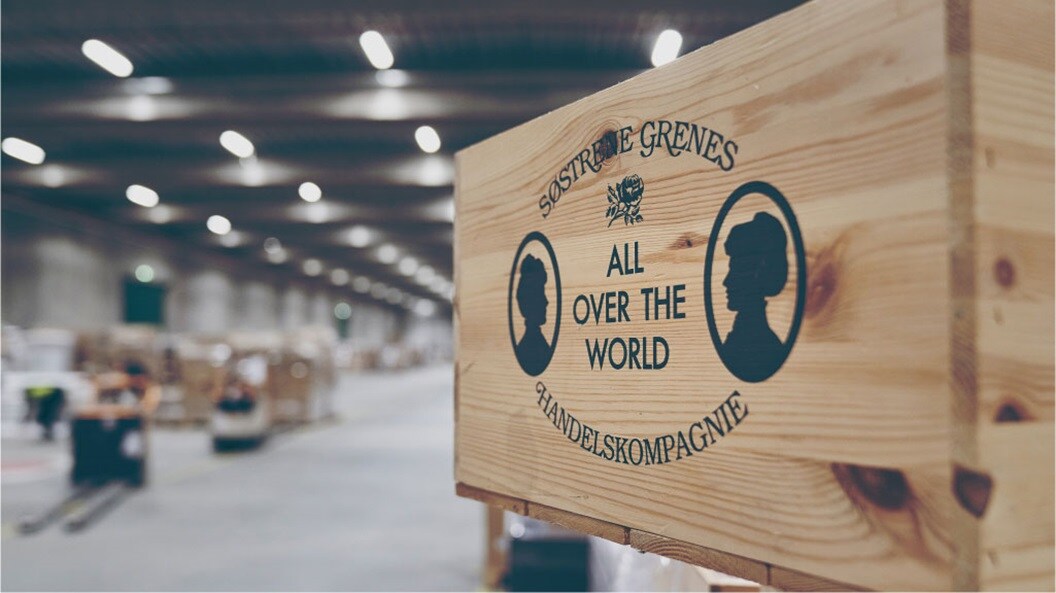This leading Danish retailer has ambitious plans. But how do you embed decarbonisation into a growing supply chain? In a multi-pronged approach, a close collaboration with your logistics partners is key.
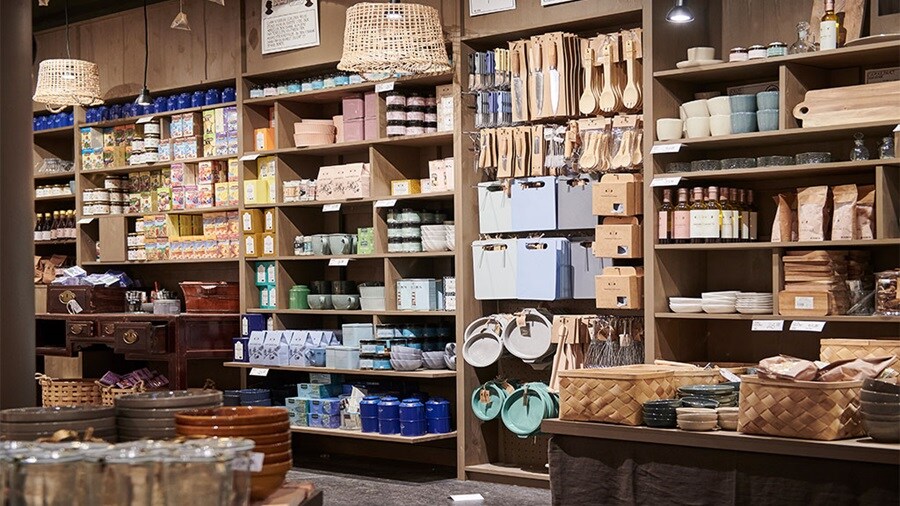
The background
Søstrene Grene is a Danish family-owned retailer that’s known across the world for its one-of-a-kind ambience and unique collection of Scandinavian design, home accessories, furnishings, hobby items, gifts and stationery.
Founded in 1973, what started as a single store in Aarhus (Denmark), has grown to become a global brand with more than 278 stores across 16 different markets.
The company is now owned and run by the second generation of the Grene family who have plans to more than double the number of stores by 2030.
With a deep understanding of the responsibility they hold for minimising greenhouse gas (GHG) emissions across its supply chain, decarbonisation is front of mind.
This led Søstrene Grene to a challenge: how do you scale your operations while reducing your impact on the climate? As part of this, the family-owned company turned to Maersk to help embed decarbonisation-focused solutions into their rapidly expanding supply chain.
We needed to work with a transportation partner who has decarbonising high on their agenda, taking concrete actions and having concrete plans to meet the goals and initiatives, and demands from the public, the government and our side.
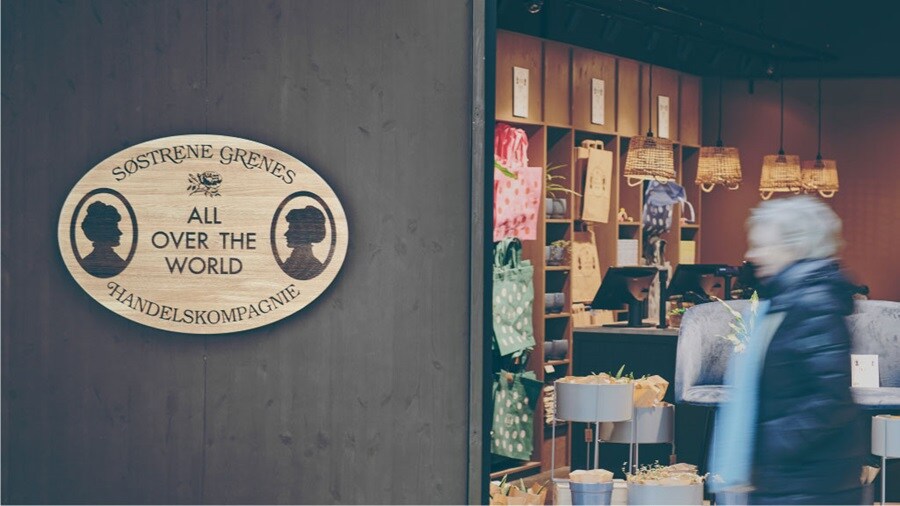
The challenge
Traditionally, Søstrene Grene has operated with a relatively straightforward supply structure. The majority of its products were shipped via container from manufacturers in Asia to stores in Europe. However, as the business has grown, that simple point-to-point structure has become a spider’s web.
Today, items are shipped from all over Asia to locations across Europe. Now, with plans to expand its business to include more than 500 stores by 2027, things are set to become more complex.
Meanwhile, ESG has been propelled to the top of the corporate agenda.
After taking steps to track its GHG emissions and explore opportunities for reductions, Søstrene Grene realised the scale of the challenge it faced. But as a retailer, they can only directly influence a small portion of their supply chain.
With as much as 98% of their GHG emissions originating from indirect activities of the supply chain - Scope 3 emissions - the company knew they’d need support from partners to make an impact.
Maersk, a potential logistics partner, has set its sights on achieving net zero GHG emissions by 2040. This goal prompts the development of new supply chain solutions that can help companies like Søstrene Grene reduce GHG emissions in their own operations.
When we first started to look at decarbonisation it was like gazing up at a huge mountain that seemed impossible to scale. But by measuring our greenhouse gas emissions and embracing initiatives to reduce them, we now see a path up that mountain.
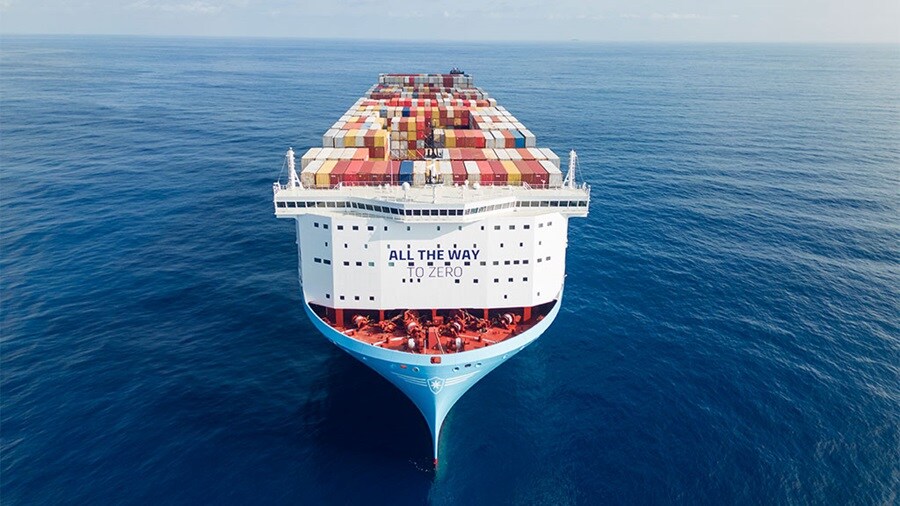
The solution
With direct control over a small portion of its GHG emissions footprint, Søstrene Grene must rely on partners with the relevant level of control and influence to help lower its climate impact.
For over two years, Maersk has been one of those partners. Maersk’s ECO Delivery offering enables Søstrene Grene to allocate GHG emission savings to their ocean shipments by using lower GHG emission fuels*.
The resilience, stability and flexibility of the supply chain is crucial to us.
There is an increase in investment when choosing this type of offering but one that Søstrene Grene - determined to make a difference where it matters - was sure it wanted to make.
Growing your business without growing GHG emissions can seem like an uphill struggle, but Søstrene Grene are taking a step-by-step approach to the task, driven by the leadership team, to provide the flexibility and scalability they need. To build a resilient supply chain, they have opted to work with Maersk, and are working on a number of initiatives to make a difference – immediately and for the future.
Introducing electric vehicles
It’s not just on the ocean that Maersk is supporting the drive for decarbonising logistics - as part of its pledge to deliver best-in-class supply chain capabilities, Maersk is working to introduce electric-powered vehicles to further reduce GHG emissions from Søstrene Grene’s operations. Offering a new alternative to traditional inland transportation; it’s another example of how these two organisations are working together towards decarbonising global retail logistics.
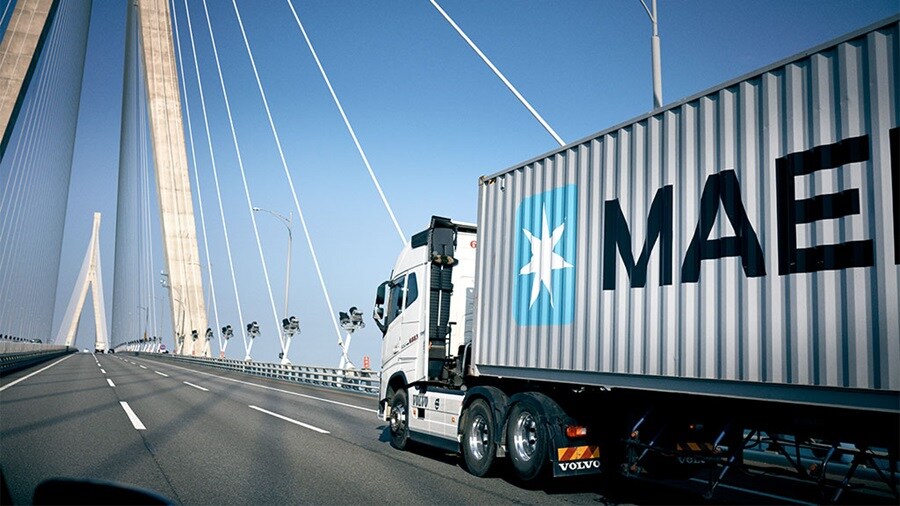
The result
With such clear ambitions to minimise their greenhouse gas emissions, Søstrene Grene are focused on building an efficient supply chain with careful consideration over the greenhouse gas emissions at each stage and how these could be reduced.
Maersk’s commitment to decarbonising global logistics and comprehensive strategy emphasising the importance of decarbonising for them and the partners they work with, helped Søstrene Grene to choose their logistics provider.
Maersk has been a chosen logistics partner since 2021, happily contributing to Søstrene Grene’s decarbonisation mission, where they are already making waves…
To support its efforts to reduce its GHG emissions footprint, the company committed to the Science Based Targets initiative in 2022 and is continually tracking progress against the ambitious targets that Søstrene Grene has set itself. The good news is that progress is already being made as, in 2023, the company reduced GHG emissions in relation to turnover.
It’s an achievement that proves that it is possible to expand retail operations while reducing one’s organisational impact on the climate. A significant step as Søstrene Grene and Maersk begin to scale the “mountain” of decarbonisation, together.
ECO Delivery
More responsible shipping choices can help you move closer to achieving your decarbonisation ambitions. Maersk ECO Delivery is an innovative product that offers GHG emissions savings through a value chain decarbonisation allocation method.
As shown in Søstrene Grene’s 2023 stats, by shipping 1585 FFEs on ECO Delivery they reduced emissions with 2825 t CO2e (well-to-wheel)**, a reduction in GHG emissions of 85% compared to transportation on conventional fossil fuels over the full life cycle.
A final word
Feeling inspired? Read Søstrene Grene’s leadership team’s final words to others who are looking to reduce their greenhouse gas emissions:
If you haven't started yet then start measuring. Once you start measuring you will open your eyes to where your emissions are and what you can actually do about it.
Get more information on how your company can reduce its supply chain greenhouse gas emissions
*Maersk defines reduced / lower GHG emissions fuels as fuels with at least 65% reductions in GHG emissions on a lifecycle basis compared to fossil of 94 g CO2e/MJ
**Carbon emissions savings calculations are based on Round Table for Sustainable green fuels (RSB) methodology and are independently audited according to ISAE 3410 – Assurance Engagements on Greenhouse Gas Statements. The CO2e emissions for transporting containers are calculated based on the Clean Cargo methodology.
Anything you need, we’re here to help
I agree to receive logistics related news and marketing updates by email, phone, messaging services (e.g. WhatsApp) and other digital platforms, including but not limited to social media (e.g., LinkedIn) from A. P. Moller-Maersk and its affiliated companies (see latest company overview). I understand that I can opt out of such Maersk communications at any time by clicking the unsubscribe link. To see how we use your personal data, please read our Privacy Notification.
By completing this form, you confirm that you agree to the use of your personal data by Maersk as described in our Privacy Notification.
